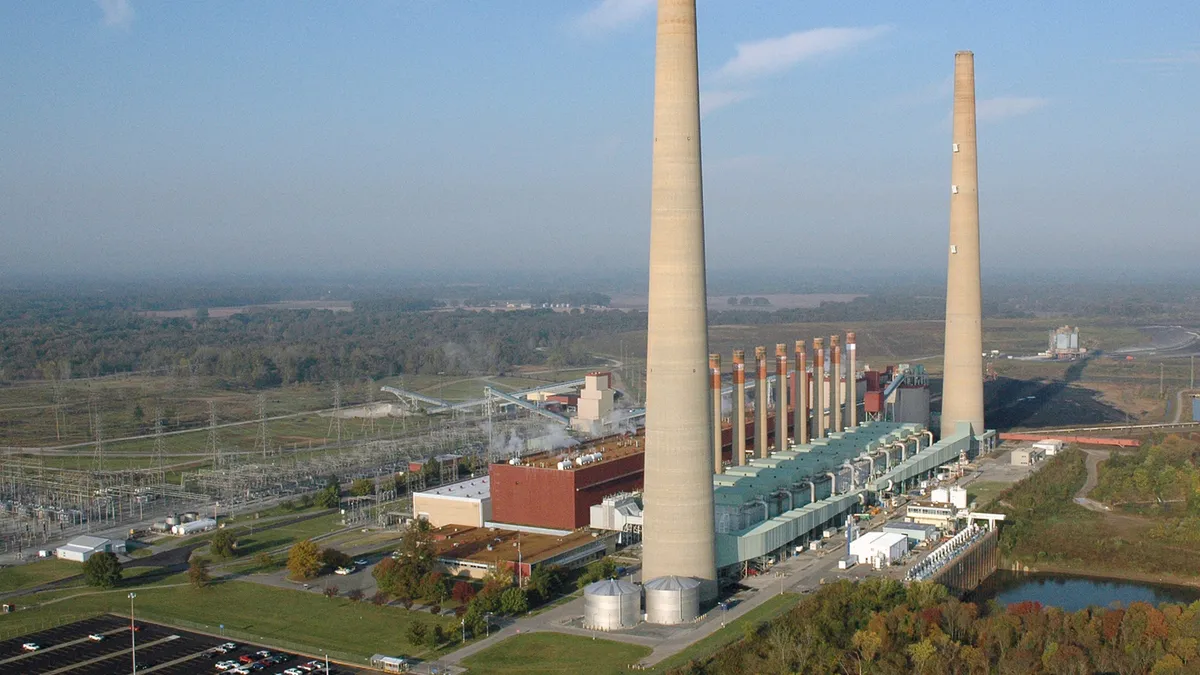Dive Brief:
-
The Tennessee Valley Authority (TVA) said it will alter its management of coal ash at a Kentucky coal plant in response to an Obama-era regulation under threat by the Trump administration.
-
The utility will close two unlined coal ash storage units at its Shawnee Fossil Plant, removing water from the waste project, and capping the remaining contents in place, according to a final supplemental Environmental Impact Statement released on Friday. TVA will then build a clay-lined coal ash facility to handle new waste from the operating plant.
-
The plan is part of TVA's process to "convert from wet to dry storage," at all its sites, said TVA spokesperson Scott Brooks. The utility committed to the process in 2009 after a major coal ash spill at its Kingston plant.
Dive Insight:
TVA's strategy for handling coal ash is a shift away from wet coal ash storage, which is more susceptible to leaks and has led to large-scale contamination of groundwater around coal plants.
In 2008, over 1 billion gallons of coal ash spilled from the utility's Kingston coal plant storage pond, releasing toxic substances into the surrounding the area. The spill, along with major accidents in other states, pushed the Obama administration to finalize its Coal Combustion Residuals (CCR) rule in 2014, the nation's first coal ash regulation.
The Trump administration moved to weaken the rule last month, but before it did, utilities around the country filed preliminary results of groundwater monitoring around coal ash sites mandated by the CCR rule.
Those processes revealed major groundwater contamination around dozens of unlined coal ponds across the country, including those operated by TVA. The utility also faced a lawsuit in 2015 for violating rules on its coal ash disposal at its Gallatin plant, which allowed coal ash to leak into local groundwater.
The utility's current restructuring is in an effort to comply with the 2015 CCR rule, Brooks said, as well as prevent another large spill.
"If you get rid of wet storage, the accident cannot happen again," Brooks told Utility Dive. "What happened at Kingston was essentially because the ash was stored too high and became too wet."
The conversion process for TVA's wet coal ash storage will involve "dewatering" the waste at unlined pits and burying the remaining contents in place, Brooks said. TVA will begin the permitting process for a new disposal facility at the Shawnee plant, which will be lined with clay and will keep coal ash at a lower moisture content.
The dried ash eventually compacts to a product comparable to concrete, though "not quite that solid," said Brooks, making spills less likely. Kingston is the only one of its plants to have fully converted to dry storage, but eventually TVA will complete the process at each of its facilities. The timeline is not set, said Brooks and the conversion will likely occur over "periods of years."
Last month, the Environmental Protection Agency issued a final rule on coal ash, which would allow some coal ponds to remain open until October of 2020, past the original April 2019 date. Because the current conversion process began under the Obama-era CCR rules, new regulations shouldn't have "major impact" on how the company stores coal, says Brooks.
Last week, however, the D.C. Circuit Court ruled that the original, Obama-era CCR regulation was not strong enough and did not require sufficient protections for unlined and partially-lined pits. The three-judge panel ordered EPA to revise the rule to mitigate for threats posed by such facilities.















